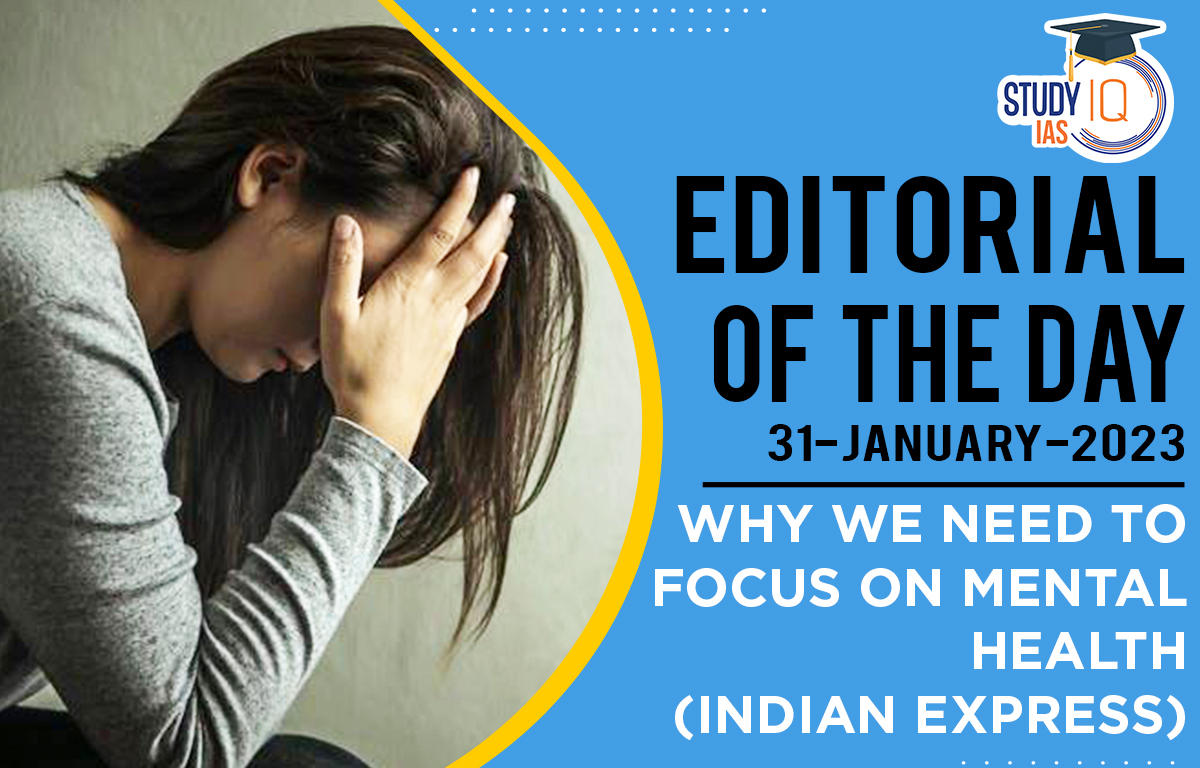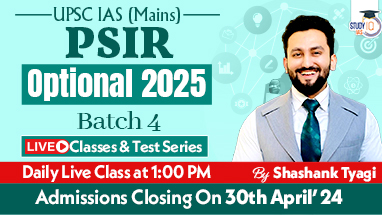Table of Contents
Context of the Article: In this article, the author writes about the need of an urgent and well-resourced ‘whole-of-society’ approach to protect, promote and care for the mental health of our people.
A Brief Background
- Suicides rates in India are the highest when compared to other countries at the same socio-economic level. Suicide has become the leading cause of death among those aged 15–29 in India.
- According to WHO, India’s suicide rate in 2019, at 12.9/1,00,000, was higher than the regional average of 10.2 and the global average of9.0.
- Gender difference: Women typically endure more pain. Everywhere in the world, women consistently have a higher frequency of several mental health issues than men.
Reason For Prevalence of Depression and Stress as per Author
- Pandemic: The pandemic might have increased the prevalence of depression by 28 per cent and anxiety by 26 per cent in just one year between 2020 and 2021.
- Social media: Increased use of social media is also exacerbating stress and mental ill health for young people.
- Social media detracts from face-to-face relationships, and reduces investment in meaningful activities and it erodes self-esteem through unfavourable social comparison.
Implications of Mental ill-Health
- Vicious cycle of disability and poverty: Mental ill-health has larger socio-economic implications. It is a leading cause of disability globally and is closely linked to poverty in a vicious cycle of disadvantage.
- Poverty increases the likelihood of developing mental health problems. Persons who have serious mental health issues are more likely to become poor due to job loss and rising medical costs.
- Stigma and discrimination undermine the social support structures. This reinforces the vicious cycle of poverty and mental ill-health.
- Countries with greater income inequalities and social polarisation have been found to have a higher prevalence of mental ill-health.
Steps for “whole-of-society” approach to protecting, promoting and caring for the mental health of our people
- Killing the deep stigma surrounding mental health issue: Social stigma prevents patients from seeking timely treatment and makes them feel shameful, isolated and weak.
- Making mental health an integral part of the public health: Programme to reduce stress, promote a healthy lifestyle, screen and identify high-risk groups and strengthen mental health interventions like counselling services.
- Special focus to groups that are highly vulnerable to mental health issues such as victims of domestic or sexual violence, unemployed youth, marginal farmers, armed forces personnel and personnel working under difficult conditions.
- Creating a strong infrastructure for mental health care and treatment: Stigma and ineffective care reinforce each other. Only 20–30% of those suffering from mental diseases are now receiving proper care.
- Less than two per cent of the government health budget is devoted to mental health issues.
- Affordable Mental Health Services: Improved coverage without corresponding financial protection will lead to inequitable service uptake and outcomes.
- All government health assurance schemes, including Ayushman Bharat, should cover the widest possible range of mental health conditions.
- A comprehensive review of these policies will be needed to ensure that financial and other barriers do not prevent people from using services or push them into poverty.


 Current Affairs 25th April 2024 for UPSC...
Current Affairs 25th April 2024 for UPSC...
 Editorial of the day (25th Apr): UK's Rw...
Editorial of the day (25th Apr): UK's Rw...
 Telangana Judicial Recruitment Notificat...
Telangana Judicial Recruitment Notificat...

















